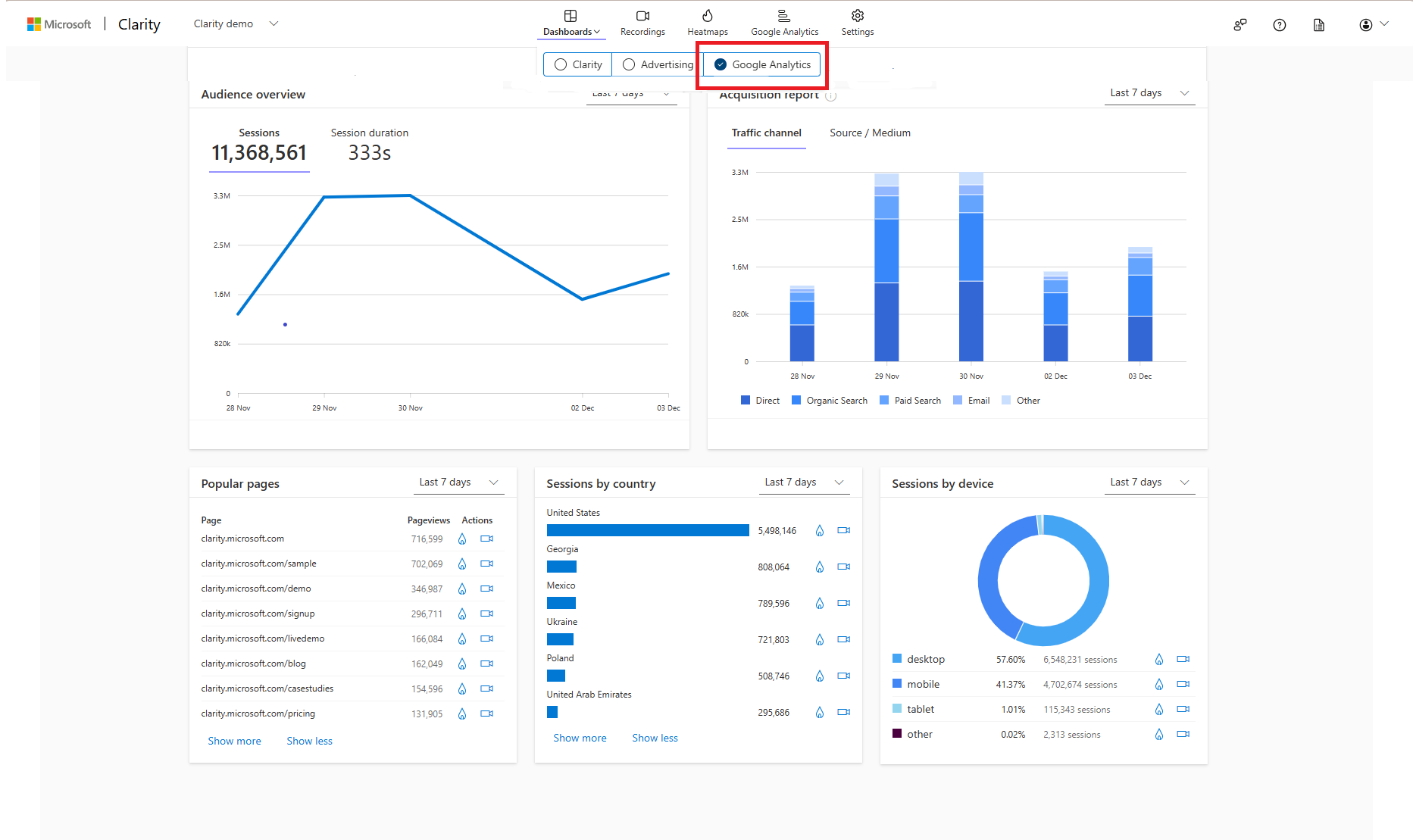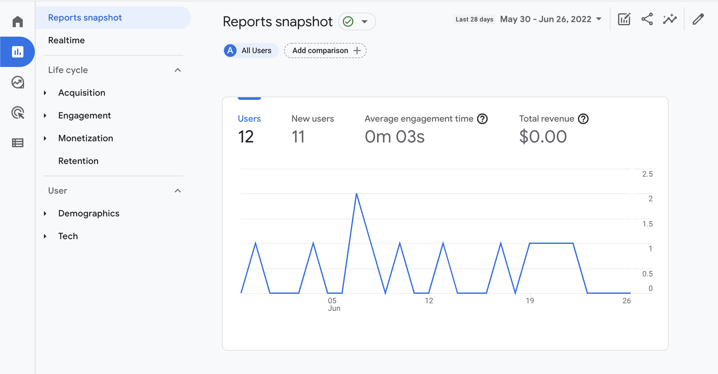The Effect of Google Analytics on Internet Site Optimization and Performance Metrics
In the world of electronic marketing, the utilization of Google Analytics has become associated with refining site performance and optimizing essential metrics. From tracking visitor habits to analyzing traffic resources, the influence of this durable device expands much past plain information collection. By diving right into the ins and outs of user communications and material effectiveness, Google Analytics empowers organizations to make enlightened choices that can raise their on the internet visibility. As we navigate through the elaborate web of site optimization and efficiency metrics, the extensive impact of Google Analytics proceeds to form the electronic landscape, using invaluable insights that transcend conventional methods.
Monitoring Site Visitor Habits
Tracking site visitor behavior is important for understanding user engagement and optimizing website efficiency. By using tools like Google Analytics, site owners can gain beneficial insights into just how visitors interact with their website. This information allows for a much deeper understanding of customer preferences, behaviors, and the performance of different site components.
Evaluating site visitor habits gives essential details on which pages are most popular, for how long individuals remain on the website, and where they often tend to go down off. With this details, website proprietors can make informed decisions on web content placement, style improvements, and overall customer experience improvements.
Furthermore, tracking site visitor behavior allows the identification of patterns over time. By checking metrics such as bounce rate, conversion rate, and ordinary session duration, web site proprietors can evaluate the influence of changes made to the website and dressmaker techniques to much better involve visitors.
Fundamentally, tracking site visitor behavior with devices like Google Analytics is not almost collecting information but utilizing that information to optimize web site efficiency, enhance individual experience, and inevitably achieve service objectives. - what data does google analytics prohibit collecting

Studying Web Traffic Sources
Assessing the resources of web traffic to a site is important for understanding where site visitors are coming from and just how they are discovering the website. By using devices like Google Analytics, web site proprietors can get valuable understandings into the performance of their advertising initiatives and the habits of their target market. The web traffic sources can be classified into numerous primary channels, consisting of direct web traffic (customers that visit the site directly), organic search (site visitors who locate the site with internet search engine), referral web traffic (users routed to the site from outside web links), social media web traffic (site visitors from social platforms), and paid marketing (customers who clicked paid advertisements)
Understanding the distribution of website traffic throughout these different channels enables site proprietors to make enlightened decisions about their advertising approaches. If a considerable part of website traffic comes from natural search, concentrating on search engine optimization (SEARCH ENGINE OPTIMIZATION) efforts could even more enhance exposure. On the other hand, if social networks networks drive very little website traffic, reapportioning sources in the direction of even more fruitful methods may be necessary. By evaluating traffic resources, internet site owners can maximize their advertising mix and improve general web site efficiency.
Enhancing Material Efficiency
To maximize the influence of site content, enhancing its efficiency is necessary for bring in and involving visitors efficiently. Enhancing content efficiency entails a tactical technique to improving the quality and significance of the info provided on an internet site. One essential facet of improving material efficiency is comprehending the target audience and tailoring the web content to meet their details needs and preferences. By making use of Google Analytics, internet site owners can gain beneficial insights into just how users communicate with their material, including which pages are most gone to, for how long visitors remain on each page, and what actions they take after seeing the content.
By assessing this look at this now information, site owners can determine areas for improvement and make data-driven decisions to enhance the general efficiency of their content. By constantly keeping an eye on and improving material efficiency based on understandings from Google Analytics, internet site owners can create an extra engaging and straightforward experience for their target market.

Improving Individual Experience
Enhancing customer experience on a site is important for promoting favorable interactions and raising visitor interaction. To enhance user experience, website proprietors can use Google Analytics to acquire valuable understandings right into individual behavior. By examining metrics such as bounce rate, ordinary session duration, and web pages per session, internet site supervisors can recognize areas Get the facts that need improvement. Understanding exactly how users navigate through the website helps in enhancing layout, web content positioning, and overall site structure to make it much more user-friendly and straightforward.
Furthermore, A/B testing functions in Google Analytics allow site proprietors to experiment with different formats, content variants, and calls to activity to establish what resonates ideal with individuals. Inevitably, by leveraging Google Analytics understandings to enhance individual experience, sites can increase involvement, drive conversions, and eventually accomplish their company goals.
Increasing Conversions
By leveraging data-driven understandings from Google Analytics, site proprietors can significantly boost their methods to increase conversion rates effectively. Comprehending individual habits via metrics such as conversion funnels, objective conclusions, and e-commerce monitoring allows services to determine areas for renovation. A/B testing different components on a website, such as call-to-action buttons or create designs, based upon data from Google Analytics can cause substantial increases in conversion rates.
Furthermore, utilizing Google Analytics to analyze web traffic resources can help businesses allocate sources efficiently (what data does google analytics prohibit collecting). By recognizing which networks drive the most conversions, whether it's organic search, paid advertising, or social media sites, companies can optimize their advertising and marketing initiatives for maximum impact
In addition, tracking user engagement metrics like bounce price, average session period, and pages per session can provide valuable insights into just how visitors engage with a website. click here to read By enhancing these metrics via data-driven techniques, companies can develop a more engaging individual experience that inevitably results in greater conversion prices.
Final Thought
Finally, Google Analytics plays an essential duty in optimizing internet site performance by tracking visitor habits, analyzing traffic sources, improving content efficiency, enhancing customer experience, and enhancing conversions. By using the information given by this device, internet site owners can make educated decisions to boost their total online presence and achieve their objectives. It is crucial for businesses to leverage Google Analytics to continuously check and readjust their techniques for maximum performance.
By assessing traffic resources, site proprietors can maximize their advertising mix and enhance total web site efficiency.
By using Google Analytics, site owners can acquire valuable insights right into exactly how users engage with their content, including which web pages are most gone to, exactly how lengthy site visitors stay on each page, and what activities they take after seeing the content. (what data does google analytics prohibit collecting)
To improve user experience, website proprietors can use Google Analytics to get beneficial understandings into individual habits. In addition, A/B testing functions in Google Analytics enable website owners to experiment with different designs, material variants, and calls to activity to determine what resonates ideal with users.In final thought, Google Analytics plays an important role in maximizing web site performance by tracking visitor habits, examining web traffic resources, enhancing material efficiency, enhancing customer experience, and enhancing conversions.